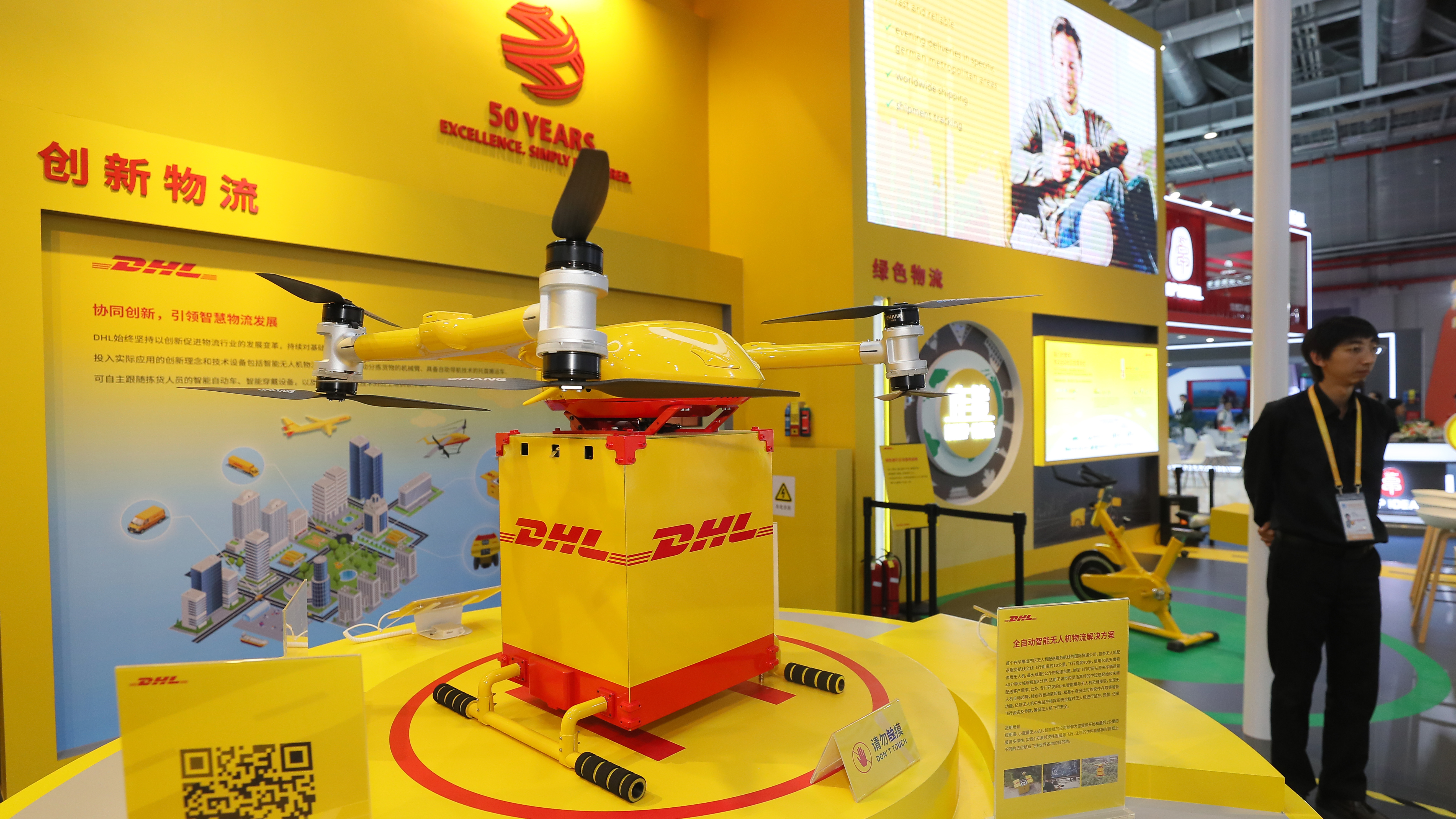China has remained the world's largest express delivery market for five consecutive years and express delivery services have become an inseparable part of Chinese life, with one in five people in China enjoying the services every day.
Busy sorting robots
The orange robots of GLP, the Singapore-based developer of logistics properties, is popular at the second CIIE. The robot can identify the destination of a package through a code-scan and has an error rate of less than 0.01 percent, significantly lower than the five percent rate with manual sorting.
"The sorting robot is funded by GLP and invented by Libiao Robots, a startup in Yiwu, east China's Zhejiang Province, which is expert in electrical control system of silk stocking frame before and applying the technology to the robot," Zhao Mingqi, co-president of GLP China told CGTN.

Zhao Mingqi, co-president of GLP China /Photo by GLP
Zhao Mingqi, co-president of GLP China /Photo by GLP
"The startup has stood out from the fierce competitive market in China as their major customers are private enterprise in China, which have high requirements for quality and cost of robots," said Zhao, adding that many problems of sorting robots like collision avoidance, or duplicate paths are effectively solved via the orange robot.
"The robot was first placed in the European and American markets via marketing network of GLP, obtaining the overwhelming response and much better than Amazon Robotics, once known as Kiva Systems," she cited.
According to GLP, the sorting robot has been used by China Post, JD.com, Deppon and Shentong (STO) Express, which can consecutively work for four hours after automatically charging for five minutes.
Zhao is full of confidence in the Chinese market, further explained that "as the Chinese market is developing very fast, especially with the unprecedented growth in the number of express parcels in China boosted by the development of e-commerce, the robot will be in greater demand on China."
Attractive smart drones
"DHL entered China in 1980 and then has established DHL-Sinotrans International Air Courier Ltd, a joint venture with Chinese logistics giant Sinotrans in 1986," Koka Lan from DHL-Sinotrans International Air Courier Ltd, told CGTN, stressing that DHL has benefited from China's reform and opening-up.
"The speed is crucial to express companies, and DHL is deeply impressed by better business environment in China, especially the improved efficiency of customs clearance," he said.
And in partnership with a Chinese unmanned aerial vehicle (UAV) company, Ehang, DHL became the first international logistics provider to introduce an AAV drone delivery service in China this year by using the Falcon smart drone, which can roll out an eight-kilometer drone delivery route and the one-way delivery time was reduced from 40 minutes by car or truck to just eight minutes via drone.
"Though the U.S. is leading in the research and application of drones worldwide, followed by the Europe, it's probable for China to catch up with the trends," said Lan.

He further explained that China is a large market of 1.4 billion people with the fast development of e-commerce and cross-border trade. And its transportation system, especially in remote areas, is still in great demand of lower logistics costs.
"In recent years, relative departments including the civil aviation administrator of China have launched certain measures to support the drone express delivery and to some extent, those trials are encouraged by the government," he added.
According to Lan, it will take a while to improve affiliated facilities of drones, to achieve a safe trip, and to make the public widely accepted not only in China but the whole world.
The company recently announced the launch of a new China-Europe railway freight express jointly opened with Xi'an International Lugang Group, which connects Xi'an, capital of northwest China's Shaanxi Province, with the German cities of Hamburg and Neuss, and is expected to shorten the haulage time from 17 days to 10 to 12 days.
Data from the State Post Bureau (SPB) of China showed Chinese delivery firms handled a total of 50.71 billion parcels in 2018, up 26.6 percent from the previous year.